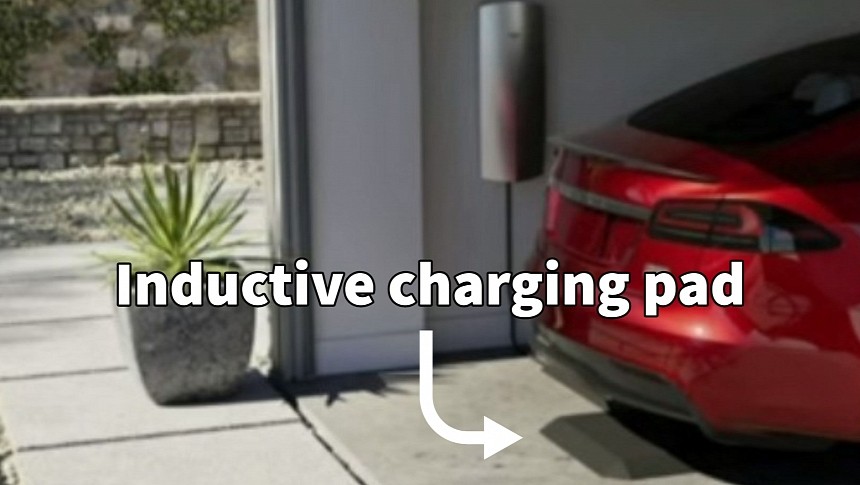Inductive charging has made significant progress in recent years, and many consider it ripe for charging electric vehicles. Tesla is looking to acquire German wireless charging pioneer Wiferion, fueling the rumors that the EV maker is preparing an inductive charging solution.
Inductive charging is not a new concept, being used for charging electric toothbrushes and other devices that spend most of their time in humid environments. Recently, wireless charging solutions for mobile phones have become widespread, and the auto industry has adopted them as an elegant way to charge the phone without fiddling with cables. Still, inductive charging could play a bigger role, thanks to electric vehicles becoming popular.
A year ago, we learned about WiTricity, a startup trying to pitch the wireless charging idea to carmakers. After it made no headways with its first partner Toyota, WiTricity tried to sell automotive inductive charging as an aftermarket solution. Witricity modified a Tesla Model 3 to include a power receiver and showed that charging your EV simply by parking it on top of a corresponding charging pad is super convenient.
WiTricity licensed its inductive charging technology to the German startup Wiferion, which is interesting considering that Tesla is rumored to acquire Wiferion. A Business Insider / Gruenderszene report shows that Wiferion shareholders agreed to sell the company to Tesla International BV, a Tesla subsidiary. Investors confirmed the sale, although they didn't mention the company's name.
Tesla has been working on its own inductive charging solutions for some time. During the March 1 Investor Day, Rebecca Tinucci, Tesla's head of global charging infrastructure, teased a wireless charging solution. No other information was offered at the time. It's likely that Tesla liked WiTricity's solution but decided to acquire Wiferion, possibly because it's more interested in its industrial charging solutions. The startup also offers inductive charging solutions for robots, which is interesting considering Tesla's efforts in this field.
With Elon Musk confident that Tesla will solve self-driving relatively soon, Tesla will put the robotaxi idea on the menu again. Autonomous vehicles are not truly autonomous if somebody needs to plug them in to charge. Tesla previously tried to solve this problem with a robotic charging arm. With inductive charging, things are a lot easier, as autonomous vehicles can be "trained" to park directly on top of the charging pad.
WiTricity's solution can charge the car at 11 kW, similar to a Level 2 AC charger. In the case of a Tesla Model 3, it takes six hours for a complete charge. With Tesla's record of thinking outside the box, I'm confident the EV maker will use the technology developed by Wiferion and turn it into a vastly superior solution. Then Wiferion could be sold again, similar to how Maxwell was dumped after Tesla used its dry battery electrode technology.
A year ago, we learned about WiTricity, a startup trying to pitch the wireless charging idea to carmakers. After it made no headways with its first partner Toyota, WiTricity tried to sell automotive inductive charging as an aftermarket solution. Witricity modified a Tesla Model 3 to include a power receiver and showed that charging your EV simply by parking it on top of a corresponding charging pad is super convenient.
WiTricity licensed its inductive charging technology to the German startup Wiferion, which is interesting considering that Tesla is rumored to acquire Wiferion. A Business Insider / Gruenderszene report shows that Wiferion shareholders agreed to sell the company to Tesla International BV, a Tesla subsidiary. Investors confirmed the sale, although they didn't mention the company's name.
Tesla has been working on its own inductive charging solutions for some time. During the March 1 Investor Day, Rebecca Tinucci, Tesla's head of global charging infrastructure, teased a wireless charging solution. No other information was offered at the time. It's likely that Tesla liked WiTricity's solution but decided to acquire Wiferion, possibly because it's more interested in its industrial charging solutions. The startup also offers inductive charging solutions for robots, which is interesting considering Tesla's efforts in this field.
With Elon Musk confident that Tesla will solve self-driving relatively soon, Tesla will put the robotaxi idea on the menu again. Autonomous vehicles are not truly autonomous if somebody needs to plug them in to charge. Tesla previously tried to solve this problem with a robotic charging arm. With inductive charging, things are a lot easier, as autonomous vehicles can be "trained" to park directly on top of the charging pad.
WiTricity's solution can charge the car at 11 kW, similar to a Level 2 AC charger. In the case of a Tesla Model 3, it takes six hours for a complete charge. With Tesla's record of thinking outside the box, I'm confident the EV maker will use the technology developed by Wiferion and turn it into a vastly superior solution. Then Wiferion could be sold again, similar to how Maxwell was dumped after Tesla used its dry battery electrode technology.






